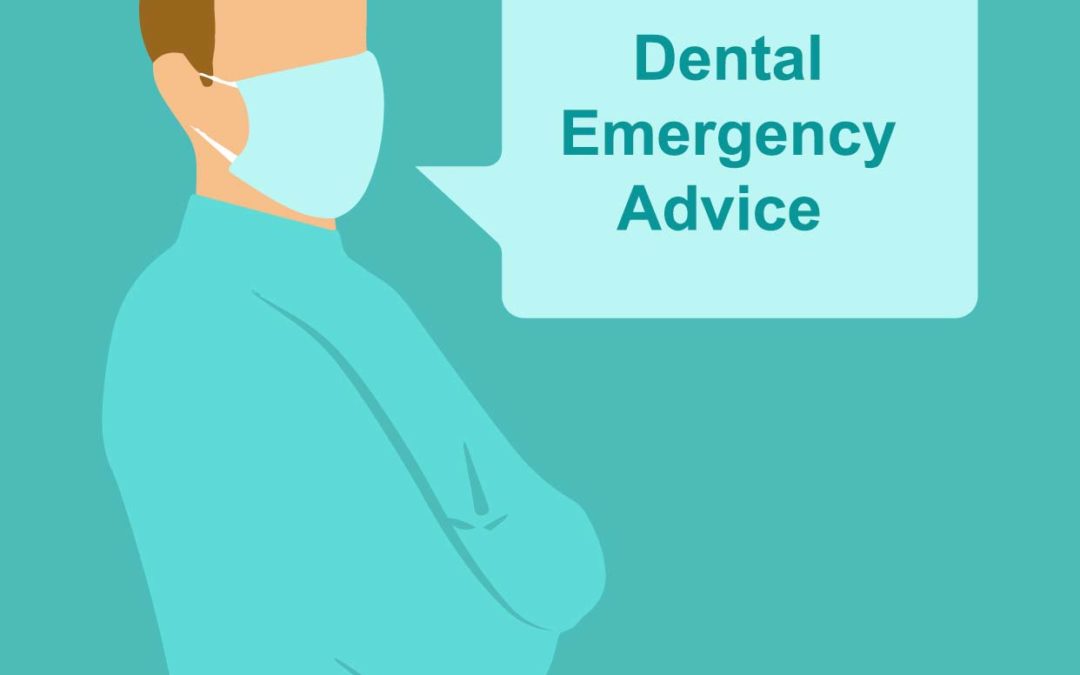With the continuing current guidance from NHS England and the Department for Health and Social Care meaning that we are unable to provide face to face dental care we thought that some advice might help patients self-manage non urgent dental problems.
We are still open (from 9.00am to 5.00pm Mondays to Thursdays and 9.00am to 2.00pm Fridays) to provide advice and may suggest analgesics and/or antibiotics where appropriate. For emergency advice out of these hours please look at the advice below, if that cannot help you, call 111.
Referrals to an urgent dental care centre may be required for severe problems only when absolutely necessary and treatment cannot be delayed. An urgent care centre may provide a face-to-face consultation and emergency only treatment
If you or anyone in your household are self-isolating, have any COVID-19 symptoms or have a high temperature or a continuous cough and are in need of emergency care you can call 111.
No routine dental care is available during this phase of the COVID-19 pandemic.
What Is A True, Severe Dental Emergency?
Please call the practice to speak to one of our clinical team members who will initially triage you, if you have the following:
- Large infection causing swelling, difficulty swallowing
- Severe dental pain which is keeping you awake at night or is constant that cannot be managed with painkillers
- Sharp tooth which has caused a severe laceration to the tongue or cheek
- Trauma which has resulted in loose or a lost adult tooth
- Bleeding following an extraction that does not stop after 20 minutes of solid pressure with a gauze/clean hanky (a small amount of oozing is normal, just like if you graze your knee)
How To Manage Dental Problems At Home
Toothache
- If you start to experience toothache then regular painkillers can help, but please be careful and ensure you do not exceed the recommended dose!
- It is important to know that antibiotics DO NOT always help with toothache and are only used in certain cases
Hole Or Broken Tooth
- If there is a hole in the tooth, or the tooth has cracked a temporary filling can be packed in to the space
- These can be purchased from your local pharmacy or online for example from Boots
Sensitivity
- Desensitising/sensitive toothpastes (like Sensodyne repair & protect) can help. Rub the toothpaste directly on to the affected area and do not rinse afterwards
- Anaesthetic gel such as Orajel can also help to ease the pain
Ulcers
- Warm salt mouth washes
- Avoid chewing on that side
- Avoid spicy or acidic foods/drinks
- Anaesthetic gel such as Orajel can also help to ease the pain
Wisdom Tooth Pain
- Warm salt mouth washes and/or Corsodyl mouthwash (please ensure that you do not have an allergy to Chlorhexidine before using this mouth wash)
- Good Oral hygiene
- Eat soft foods (nothing crunchy/hard)
- Avoid chewing on the side of pain,
- Painkillers if required
Non Urgent, May Need To Wait
- Loose or lost crowns, bridges or veneers
- Broken, loose or lost fillings. Chipped teeth with no pain. Broken, rubbing or loose dentures
- Bleeding gums
Prevention
- Good oral hygiene and regular brushing (twice a day) with a fluoride toothpaste is very important to keep your teeth and gums healthy
- Reducing your sugar intake will help to ensure any existing decay does not get any worse
Keep Safe and Well
We appreciate your continued support at this difficult time. You support helps to ensure that dental practices can re-open in a safe manner when we are allowed to.



Thank you for contacting us.
To give you advice we would recommend you telephone the practice where one of our dentists will be able to speak to you.